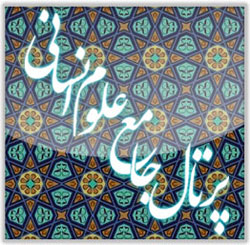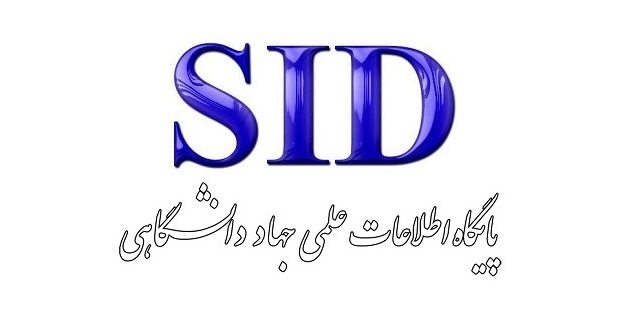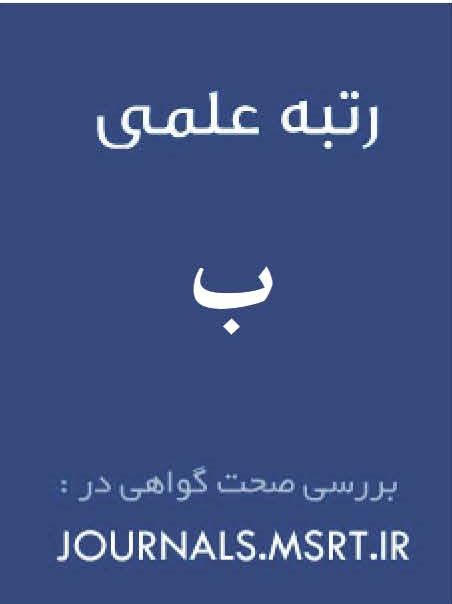بررسی جلوههای علم معانی در دیوان شعر شوکت بخاری
کلمات کلیدی:
بلاغت , علم معانی, معانی ثانوی کلام, دیوان شوکت بخاریچکیده
علم معانی چگونگی تناسب سخن، با مقتضای حال و مقام گوینده، مخاطب، مکان، موضوع و نوعی ادبی را بررسی و ارزیابی میکند. موضوع علم معانی بررسی انواع جمله از جهت معانی ثانویه آن است. پژوهش حاضر با هدف بررسی جلوههای علم معانی در دیوان شوکت بخاری و با روش توصیفی-تحلیلی انجام شده است. تحقیق حاضر، حکایت از آن دارد که شوکت بخاری در راستای افزایش غنای سخن و تکاپوی ذهن مخاطب، مباحث مهمّی از علم معانی مانند اسناد خبری، قصر و حصر، انشاء، مواضع فصل، مواضع وصل، ایجاز، اطناب، و امثال آن را به روشهای نیکو و شگفت انگیز به کار گرفته، به گونهای که خوانندگان این اشعار نه تنها با خوانش این اثر سترگ، لذّت فراوان حاصل میکنند، که به مدد معانی ثانوی کلام، از مفاهیم بلند آن بهرمند میشوند.
دانلودها
مراجع
1. Zākāni U. Collected Poems: Zora Publications; 1957.
2. Naghibzadeh M. The Role of Rhetorical Sciences in Responding to the Doubts of the Quran's Miraculousness. Shenakht-e Quran (Understanding the Quran). 2010(1).
3. Shamisa S. Rhetoric and Meanings: Tehran: Ferdows Publications; 2003.
4. Bahrami M, Kooshan A, Farzi H. Criticism of the Printed Divan of Shaukat Bukhari and the Need for its Re-correction. Faslnameh Matn Shenasi Adab-e Farsi (Journal of Persian Literary Textual Criticism)IS - 2. 2019.
5. Mir Sadeghi J. Elements of the Story: Tehran: Sokhan Publications; 2001.
6. Rajaei MK. Features of Rhetoric: Tehran: University; 1981.
7. Sadeghian MA. The Standard of Speech in Meanings and Rhetoric: Tehran: Markaz-e Entesharat-e Elmi Daneshgah-e Azad-e Eslami (Scientific Publications Center of Islamic Azad University)ER -; 1992.
8. Salehi F, Zakeri A. Examining the Similarities between the Science of Meanings and Jakobson's Theory of Communication with Emphasis on the Verses of the Holy Quran. Scientific-Research Bi-annual Journal of Quranic Linguistic Studies. 2017(1).
9. Kardgar Y, Kardgar Y. Revisiting the Discussion of Itnab (Prolixity) in Rhetorical Books The Science of Meanings in the Transition from Persian Poetry Styles. Fonun-e Adabi (Literary Techniques). 2011;6IS - 8(2).
10. Jamali F. Reflection of the Science of Meanings in Rudaki's Poetry. Danesh-kadeh Adabiyat va Olum-e Ensani (Faculty of Literature and Humanities). 2009(2).
11. Homai J. Meanings and Rhetoric - 2nd Edition: Tehran: Homa; 1994.
12. Shaukat B. Collected Poems: Tehran: Ferdows Publications; 2003.
13. Rezanajad G. Principles of Rhetoric in the Persian Language: Tehran: Al-Zahra Publications; 1988.
14. Alavi Moghaddam M, Ashrafzadeh R. Meanings and Rhetoric: Tehran: Sazman-e Motale'eh va Tadvin-e Kotob-e Olum-e Ensani Daneshgahha (SAMT) (Organization for the Study and Compilation of Humanities Books of Universities); 2008.
15. Kazazi MJ. Aesthetics of Speech: Meanings: Tehran: Ketab-e Mad; 1994.
16. Shamisa S. A New Look at Badi' - Rhetorical Figures: Tehran: Ferdows; 2007.
17. Zolfaghari D. Rhetorical Criticism of Verses from Ferdowsi's Shahnameh from the Perspective of the Science of Meanings. Faslnameh Matn Pazhuhi Adabi (Journal of Literary Textual Research)IS - 51. 2012.
18. Ibn Mu'tazz A. The New Style: Baghdad; 1999.
19. Raduyani MbO, Atash A. Interpreter of Eloquence: Tehran: Asatir; 1983.
20. Salehi F. The Science of Meanings and Halliday's Functional Grammar. Literary Monthly. 2007(8).
21. Erfan H. Shores: Qom: Mu'assese-ye Entesharat-e Hejrat (Hejrat Publications); 2000.
22. Hamidian S. An Introduction to the Thought and Art of Ferdowsi: Tehran: Nashr-e Markaz; 1993.
دانلود
چاپ شده
ارسال
بازنگری
پذیرش
شماره
نوع مقاله
مجوز
حق نشر 2025 امیدوار عالی محمودی, سلطانمراد علی مردان خانی, سید علی سهراب نژاد (نویسنده)

این پروژه تحت مجوز بین المللی Creative Commons Attribution-NonCommercial 4.0 می باشد.








